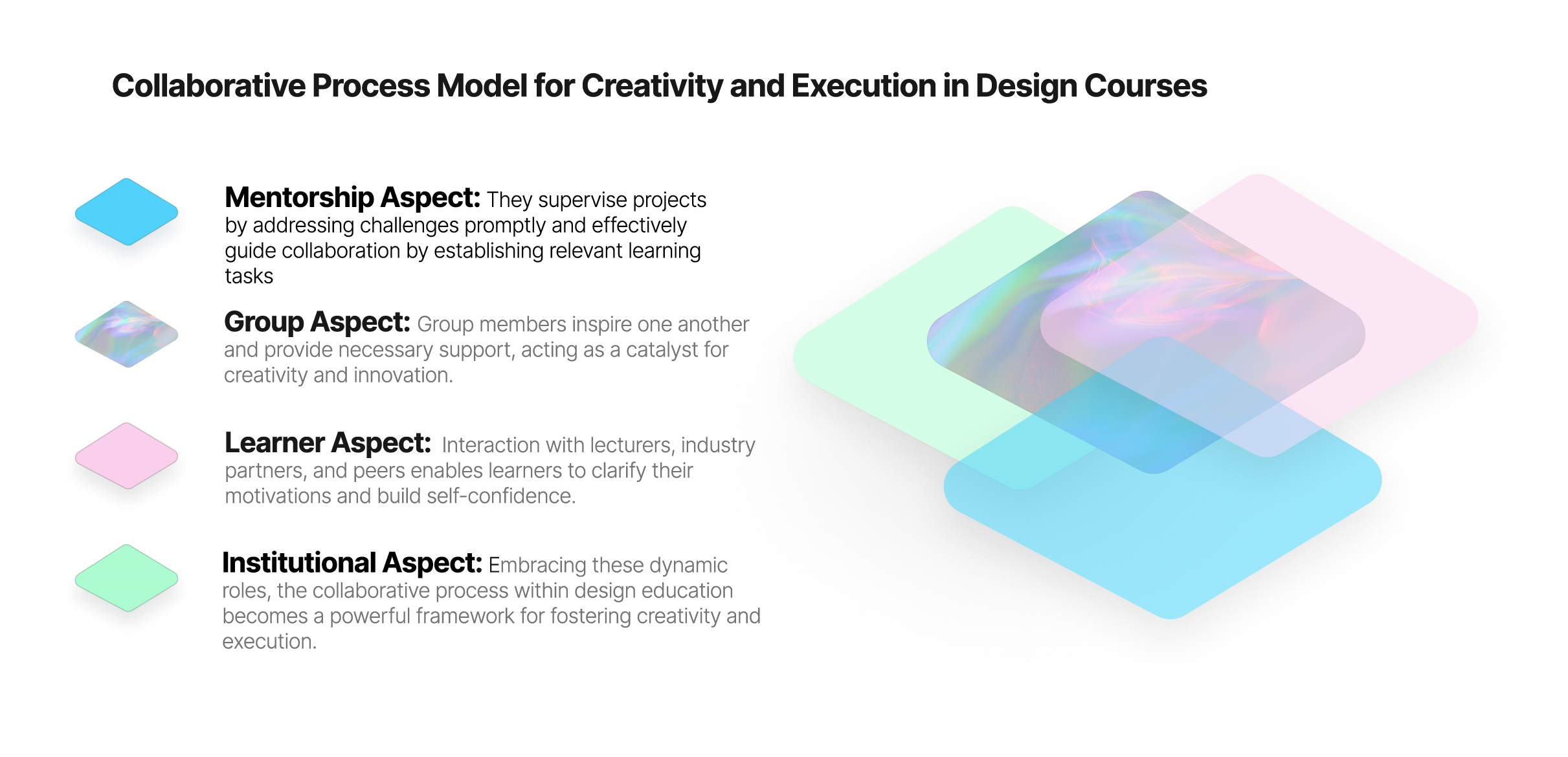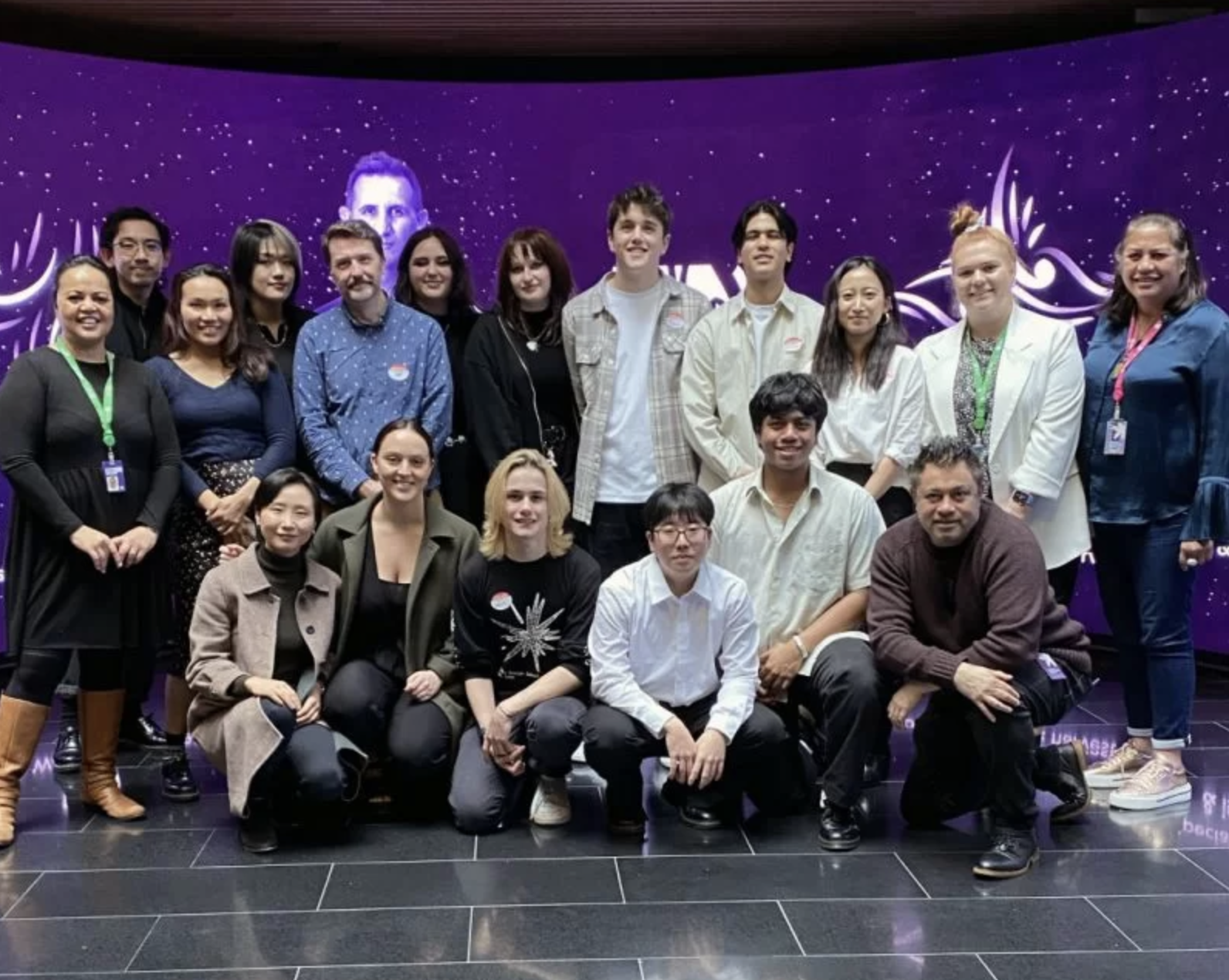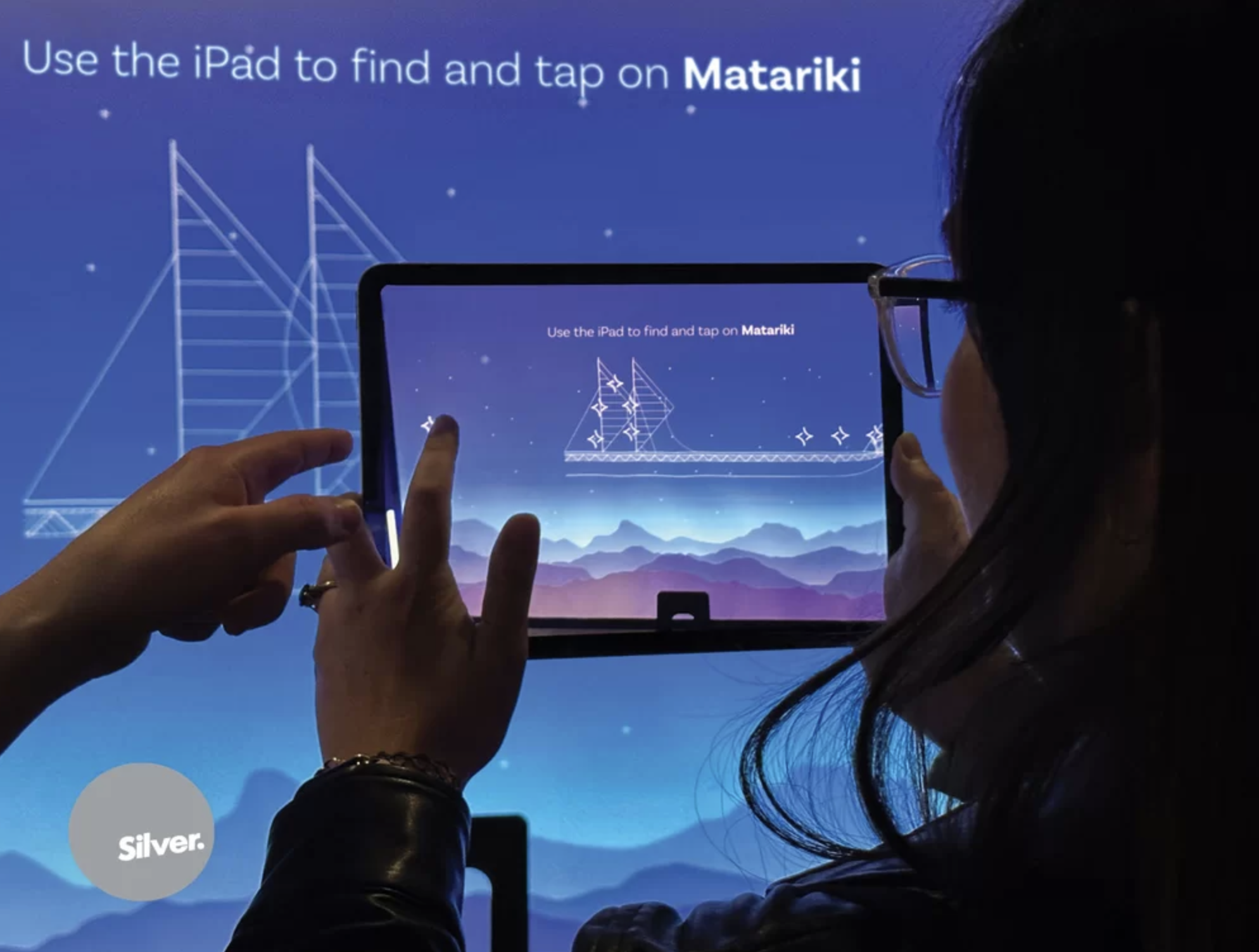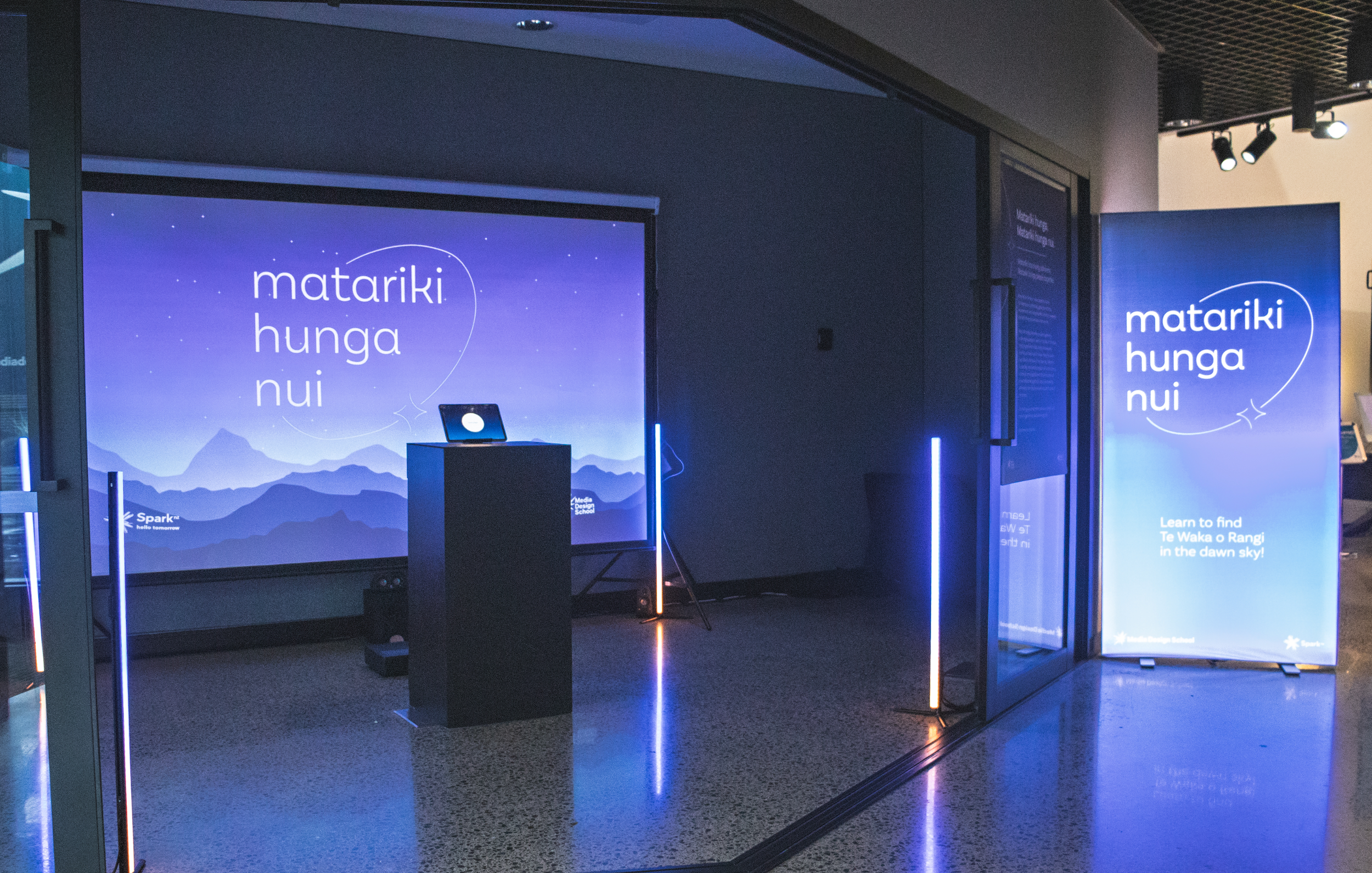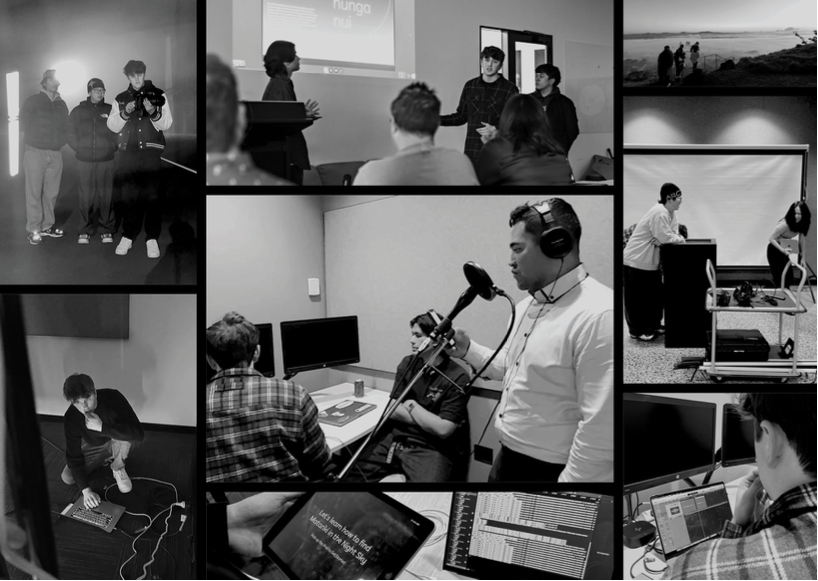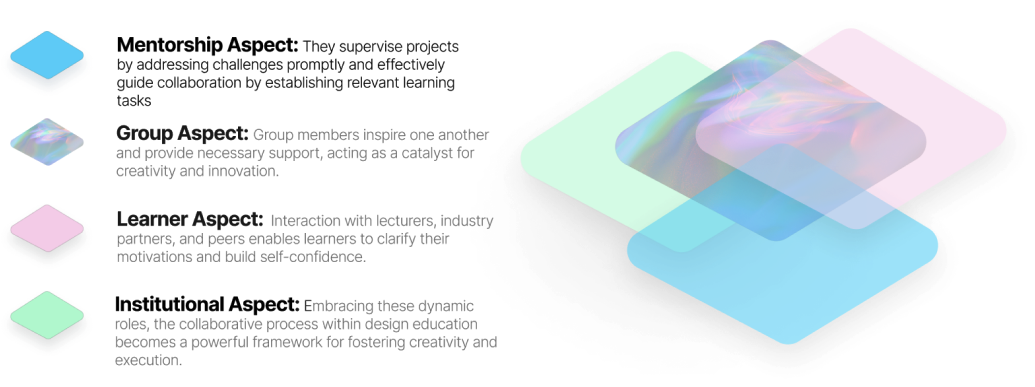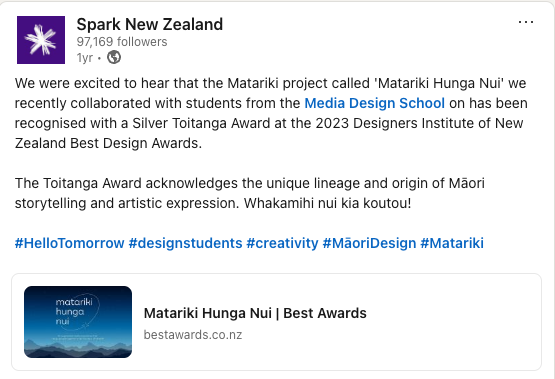Exploring Teaching Experiences With SPARK Using Augmented Reality and 5G Technology
I have been actively involved in the Bachelor of Media Design (BMD) program, where I facilitated an 8-week interdisciplinary group project worth 30 credits at Level 7, in collaboration with Spark, a leading New Zealand telecommunications company. The project, grounded in Te Korowai Tupu, emphasized co-creation, co-design, and collaboration with Māori communities, centring on the concept of shared space and the principles of Te Tiriti o Waitangi—protection, partnership, and participation. This approach safeguarded whakapapa (ancestry), cultural practices, and taonga (treasured possessions), while addressing the importance of protecting whānau (families) in digital spaces.
Students designed an integrated media marketing campaign celebrating Matariki (Māori New Year), working in interdisciplinary teams to create digital mock-ups using speculative design and augmented reality (AR) powered by 5G technology. This process encouraged creativity, critical reflection, and alignment with tikanga Māori (Māori customs), ensuring cultural relevance. The project also focused on empowering rangatahi (Māori youth) as future leaders, using technology to inspire innovation and community engagement.
The project was recognised with a Silver Toitanga Award at the 2023 Designers Institute of New Zealand Best Design Awards and bridged cultural narratives with contemporary design. Rooted in participatory co-design, it fostered inclusivity and collaboration, integrating Te Ao Māori (the Māori worldview) into professional settings. Despite challenges like limited fluency in te reo Māori, the project reduced whakamā (hesitation) and deepened connections to Māori values. Insights from Riki and Manu at Spark enriched the project, inspiring future learners to explore design and creative technology.
Students involved are Sam Oxford, Salem McKay, Gio Bumanlag, Solbi Ju and Jinwoo Park
Special thanks to:-
Riki Holings - SPARK Māori Development Lead
Manu Keung - SPARK People & Culture Business partner.
Don Chooi - MDS Senior Lecturer
Jocelyn Janon - MDS Lecturer
Jim Muray - MDS Programme Leader
NZ Best Awards (Toitanga student Silver awards)
The collaborative experience was reflected upon and shared at the following conference:
Conference: The Korean Conference on Education
Presentation Type: Virtual Presentation
Abstract
This case study provides a unique lens into teaching experiences through the innovative project "Matariki Hunga Nui," which embodies co-learning with SPARK utilizing Augmented Reality and 5G Technology. In a transformative journey in design education, educators collaborate with industry partners to co-design live briefs aligned with course objectives. This project, a pedagogical innovation beacon, invites final-year Bachelor of Media Design students to form interdisciplinary teams. These groups, comprising motion designers, UX/UI specialists, and graphic designers, transcend traditional roles to embrace novel positions such as relationship designer, translator, behaviour designer, and visualiser, thereby nurturing an inclusive and dynamic learning environment. Recognised with a silver award in student and academic categories from the Design Institution of New Zealand, "Matariki Hunga Nui" demonstrates the power of experiential learning. The project aimed to revive Maori traditions in celebrating and appreciating the Matariki festival, utilising storytelling and augmented reality tools to locate the Matariki star cluster meaningfully. Educators facilitate co-learning and co-designing in studio-based settings, nurturing reflective practices through prototyping and design thinking. Agile tools enable iterative refinement, with ongoing evaluations before formal presentations. Under the program director's mentorship and with SPARK's collaboration, lecturers and students embark on technical exploration and hands-on experimentation, culminating in installations. The projects sourced from external entities offer invaluable insights derived from case studies and stakeholder perspectives. Educators evolve from knowledge dissemination to active mentorship, shaping student-led projects. This holistic approach equips educators and students with practical skills, fostering adaptability in design education's evolving landscape.
Below is the recorded presentation.

